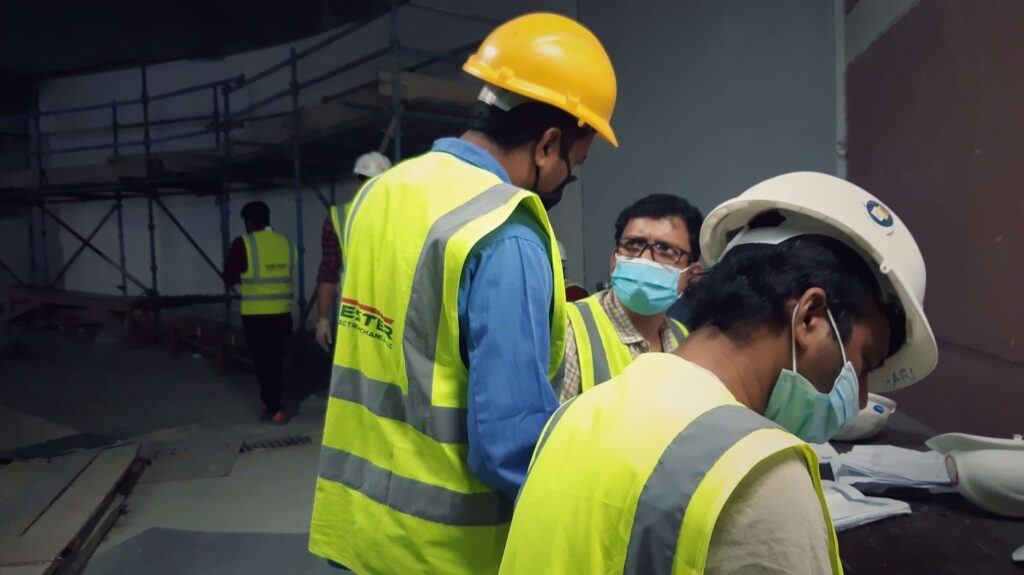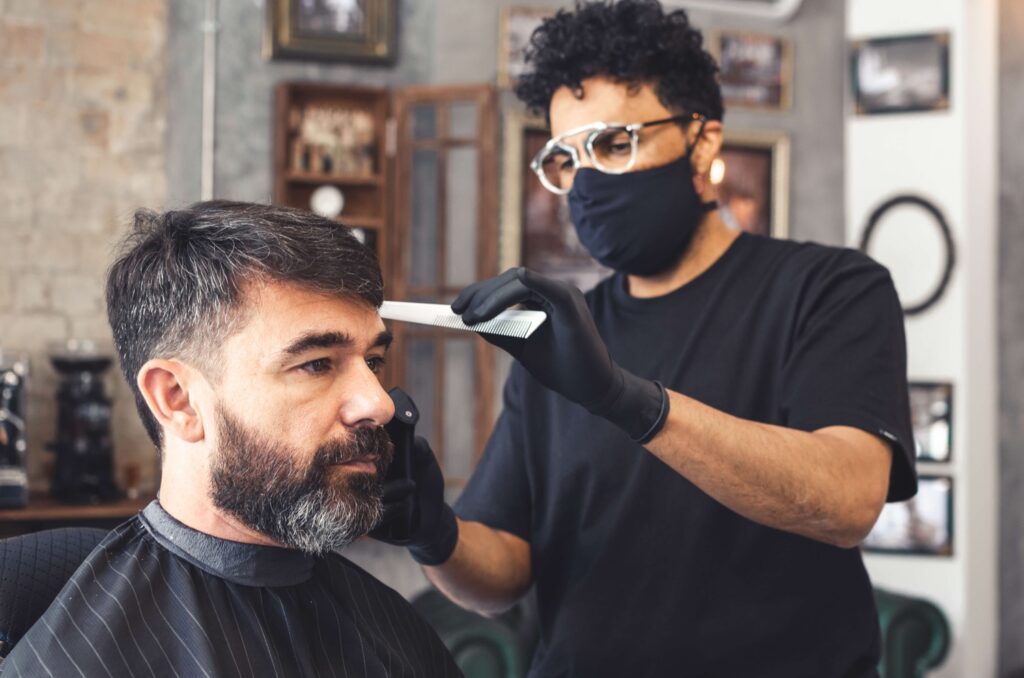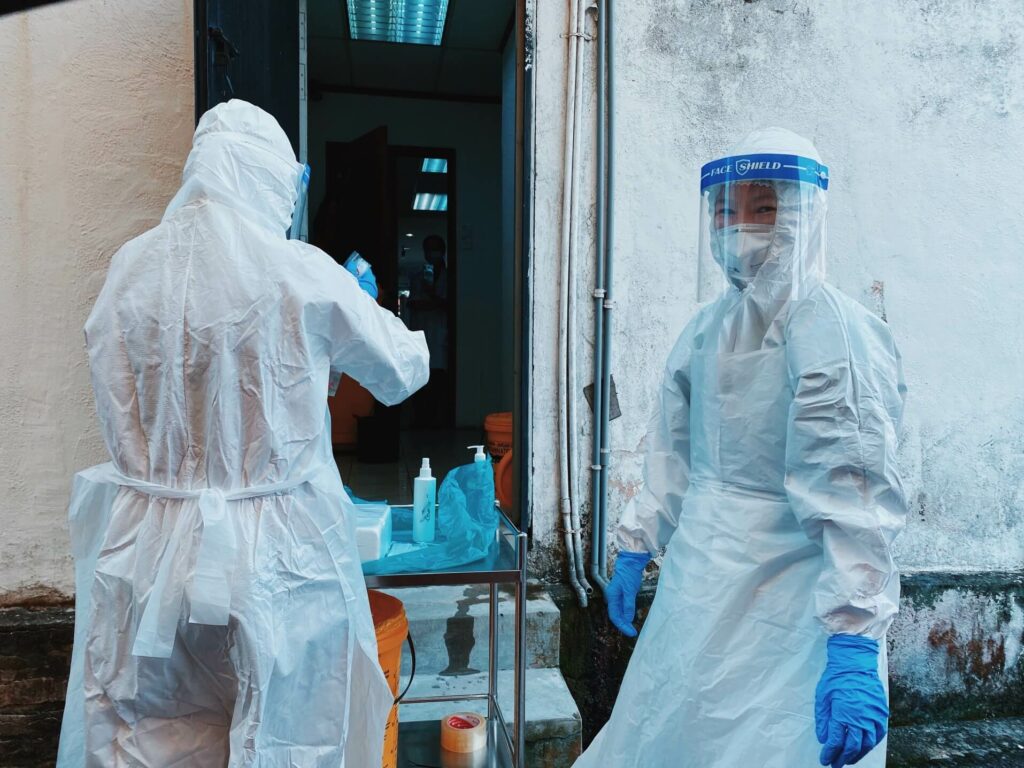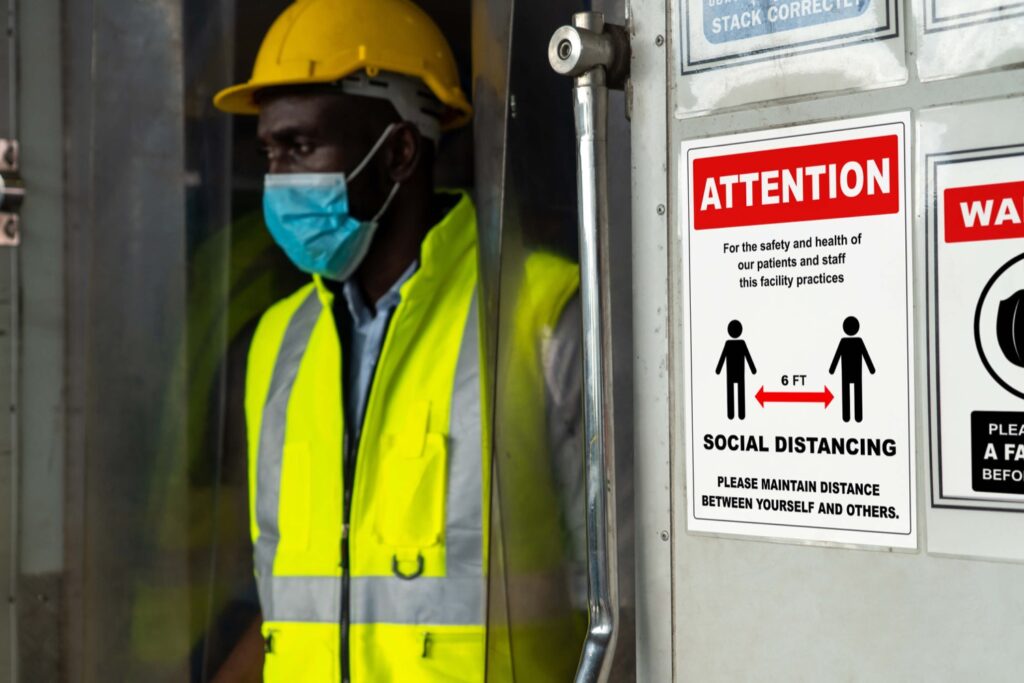Background
Over a year into the COVID-19 pandemic, communities across the country, particularly communities of color and low-income communities, continue to experience countless losses of life and economic devastation. In 2020, state leaders took immediate action to provide relief to families and to empower workers through the economic crisis.
Workers of all races experienced job losses, but the pandemic has amplified the multiple and compounding barriers that workers of color face in the economy. In December of 2020, nearly 10 percent of Black workers and 8.4 percent of Latinx workers were unemployed, compared to 6 percent of white workers. Women, mostly Black and Latina women, are bearing the brunt of job losses, accounting for the entirety of the 140,000 net jobs lost in the economy in December.
Women of color are also more likely to hold jobs in “essential services,” such as grocery clerks and health care workers, where they are most in need of job-protected and paid time off from work, but least likely to have access to it. One in five essential workers are Latinx, and one in six are Black. These frontline jobs, which are often low-paid and without health and safety protections, put Black and Latinx people at greater risk of contracting COVID-19. As a direct result of these increased workplace risks and a long legacy of structural racism in health care and the social determinants of health, Black, Indigenous, and Latinx Americans are dying from COVID-19 at a rate almost 3 times as high as the rate for white Americans.
What are states doing to protect workers’ rights during COVID-19?
The 2020 legislation outlined below aims to protect workers who are recently unemployed as a result of COVID-19 and “essential” workers who are often risking their health to go to work. The policy areas discussed in this publication are:
- Emergency Paid Sick Leave
- Hazard Pay for Essential Workers
- Expansion of Unemployment Insurance Benefits
- Workers’ Compensation
- Workplace Health and Safety Protections
- Whistleblower Protections
- Wage Theft Protections
Please note that this is neither a comprehensive policy list nor necessarily a list of the most progressive solutions on this subject; when moving forward with legislation, we recommend working with local and national advocates to craft the best solution for your state. Please reach out to SiX if you would like help connecting with national experts.
Emergency Paid Sick Leave
Paid sick leave is essential so that workers can stay home when they are sick, and it is absolutely critical to stopping the spread of a virus during a pandemic. Nearly one in four American workers do not have access to a single paid sick day at their job. Low-wage workers, service workers, and Latinx workers are the least likely to have access to paid sick leave. Congress authorized the first national paid sick leave policy with the passage of the Families First Coronavirus Response Act (FFCRA), giving workers up to two weeks of emergency paid sick days for coronavirus-related health and caregiving needs. The new policy was historic and lifesaving—one study estimated that the FFCRA paid sick leave provisions resulted in 400 fewer confirmed cases of COVID-19 per state per day.
Still, carve-outs in the new federal protections left out up to 106 million workers, many of them women of color in the health care industry. With the expiration of the FFCRA leave protections, states must act to protect workers by enacting emergency or permanent paid sick leave legislation. Only 13 states and Washington, D.C. have passed legislation to provide permanent paid sick leave to workers who would otherwise not have access to it, allowing employees to put personal or family health needs first, including when ill or experiencing symptoms of COVID-19.

Colorado enacted CO SB 20-205, which is now one of the country’s strongest paid sick time laws. Through December 31, 2020, the legislation extended access to emergency paid sick leave for more workers who were left out of the FFCRA protections. Beginning January 1, 2021, the law entitled employees to earn paid sick time for general personal and family health needs.
New York enacted NY S 08091/A 10153 to provide emergency paid sick leave for certain purposes related to COVID-19. New York also passed a permanent paid sick time law as part of the state’s budget.
New Jersey’s legislature passed NJ S 2304/A 3900, a bill that expands the state’s existing paid sick leave laws to include leave for caregiving or quarantine needs during a declared state of emergency.
The California legislature passed CA AB 3216, which was vetoed by the governor. As introduced, the bill would have amended the state’s laws to allow paid sick leave for high-risk individuals, caregivers, and other public health workers. By executive order, the California governor provided emergency paid leave for food sector workers for purposes related to COVID-19. California also enacted CA SB 1383, which expands existing unpaid medical leave protections to workers at businesses with five or more employees (lowered from 50 or more employees) and protects an employee’s health benefits during the leave. This means that more workers will be able to take job-protected leave (paid or unpaid) to care for a family member with a serious illness.
The Massachusetts legislature introduced MA H 4700 and MA H 4928, which would have entitled all workers in Massachusetts to emergency paid sick leave during current and future public health emergencies. Massachusetts also introduced MA H 4627, which would have ensured state government employees have paid sick leave time to address health impacts due to COVID-19 infection, quarantine, or isolation.
The Michigan legislature introduced MI SB 0961, which would have expanded the state’s existing paid sick time law to be more comprehensive and provide additional coverage for public health emergencies. By executive order, Michigan’s governor protected workers from retaliation for staying home from work to prevent the spread of COVID-19.
Legislators in Louisiana introduced LA HB 832, which would have created permanent paid sick leave protections for workers, including leave for business or school closures due to a public health emergency.
The Ohio legislature introduced OH HB 593 to provide quarantine or isolation pay and sick leave benefits to workers during a declared emergency. This bill would also have created an unemployment insurance-like grant program for contract workers who are unable to work due to quarantine or public health orders.
Hazard Pay for Essential Workers
Some states introduced legislation in 2020 to provide additional compensation in the form of “hazard pay” to essential workers, since they are at a greater risk of contracting COVID-19. Nearly half of all frontline essential workers, who are disproportionately Black and Latinx, are paid less than a living wage. Not only are essential workers woefully underpaid and risking their lives to keep the rest of the economy running—they are also more likely to have an underlying health condition that puts them at increased risk of serious illness if infected with COVID-19.
In the early months of the pandemic, many large corporations announced modest hazard pay for essential workers. A poll conducted in May found that 30 percent of people working outside their home were receiving hazard pay. By late summer, despite reporting skyrocketing profits, nearly all of the nation’s largest companies had ended their hazard pay policies. As the hazard of working in frontline industries continues, hazard pay policies at the state level can extend a lifeline to essential workers.
The Massachusetts legislature introduced MA H 4740, which would have provided emergency health hazard benefits to each essential employee. The legislature also introduced MA H 4745, which would have required that any employer that provides COVID-19 essential services to also provide hazard pay if they employ at least six individuals.

The New York legislature introduced NY A 10359/S 8955 to provide hazard payments of up to $25,000 annually to essential workers during a state disaster emergency. Another New York bill, NY S 8839, would provide frontline state workers with a $2,500 pay differential and 35 hours of additional accrued vacation time.
Legislators in Vermont enacted VT H 965, which appropriated $28 million in federal Coronavirus Relief Funds (CRF) to establish the Frontline Employees Hazard Pay Grant Program. The program makes grant funds available to health care, human services, and public safety employers to provide a one-time hazard payment of up to $2,000 to eligible employees. The Vermont legislature also passed VT S 352, which appropriated an additional $2.5 million and expanded the hazard pay grant program to other industries, including janitorial services, food service providers, nurse contracting agencies, and homeless shelters.
The Louisiana legislature enacted LA HB 70, which provided a one-time hazard pay rebate of $250 to workers in “essential critical infrastructure” industries earning less than $50,000 in annual income. The rebate program was funded by a $25 million appropriation in federal CRF funds and administered by the state’s Department of Revenue.
Expansion of Unemployment Insurance Benefits
In the wake of the economic fallout from the pandemic, unemployment benefits have ensured that millions of American workers can continue to pay their bills, while also buoying an economy plunged into an unprecedented recession. Although the economic and health impacts of COVID-19 have fallen hardest on Black and Latinx workers, the pervasive legacy of racism in the economy has left the same workers with lower access to unemployment benefits. Black workers, in particular, have been shut out of unemployment benefits by deliberate policy decisions to restrict access and reduce benefits in Southern states with higher shares of Black residents. Even in states with fewer restrictions of unemployment insurance (UI) eligibility, Black workers receive lower benefit amounts as the direct result of job discrimination, wage gaps, and limited workplace protections.
The passage of the Coronavirus Aid, Relief, and Economic Security (CARES) Act in March of 2020 and the short-term relief bill that passed in December provided a much-needed boost to struggling state unemployment programs by providing a temporary supplement to benefit amounts, extending the duration of benefits, and extending benefits to more workers who are typically ineligible for UI, including self-employed workers and independent contractors. States can build upon the new federal enhancements by strengthening their UI programs to better protect the economic security and health of all workers.
Colorado enacted CO SB 20-207, which ensures that workers can return to work safely by clarifying that an allowable reason for UI recipients quitting or not returning to work includes caregiving needs, school closures, or underlying health conditions during a public health emergency.

Kansas enacted KS HB 2016, which introduces temporary flexibilities in the UI program by waiving the work search requirement for applicants during the disaster emergency and waiving the one-week waiting period before new claimants can receive benefits.
Minnesota enacted MN HF 4531, which temporarily amends the definition of “suitable employment” for the purposes of UI eligibility to exclude jobs that put the health and safety of the applicant, other workers, or the public at risk for potential exposure to COVID-19. The bill also temporarily suspends the one-week waiting period for receiving benefits and provides that involuntary leaves of absence related to COVID-19, such as a public health order or school closure, do not make an applicant ineligible for UI.
New York enacted NY S 8275, which allows recipients to receive benefits even if they have previously received an overpayment in benefits. The bill suspends existing penalties against such UI applicants for the duration of the current state of emergency.
The Massachusetts legislature introduced MA H 4747, which would have appropriated $75 million in state rainy day funds to establish the COVID-19 Food Service and Hospitality Worker Relief Emergency Fund. The fund would have provided financial assistance to individuals employed in the food service and hospitality industry who have been laid off or are otherwise experiencing financial distress as a result of COVID-19.
Legislators on the Joint Emergency Board in Oregon, which has spending authority when the legislature is not in session, appropriated $10 million in April of 2020 to fund the Oregon Worker Relief Fund, which provides financial support to Oregon workers who are excluded from UI benefits and other forms of federal or state relief, such as undocumented workers. The board appropriated an additional $10 million from the state’s federal Coronavirus Relief Fund (CRF) in June.
The Illinois legislature introduced IL HB 5861/SB 4026, which would permanently waive state efforts to recover benefit overpayments made to UI recipients during the COVID-19 emergency if the overpayments were made through no fault of the recipient
Workers’ Compensation
As more states reopen and workplace transmission of COVID-19 increases, state workers’ compensation insurance programs can protect the health and financial well-being of workers who contract the virus. While workers’ compensation does not cover common community-spread illnesses that may be difficult to identify as workplace-related, there are existing exceptions for chronic illnesses that are prevalent in certain industries, like lung conditions for first responders.
Black, Latinx, and immigrant workers, who are overrepresented among essential industries and less likely to be able to work from home, have been exceptionally vulnerable to workplace exposure to COVID-19. At the same time, low wages and low access to health benefits mean that many essential workers who contract COVID-19 will be faced with catastrophic financial and health consequences without adequate protections. More than a third of essential workers live in low-income households, and essential workers in some industries are more likely to be uninsured. States can take additional steps to ensure that those who contract COVID-19 in the workplace are eligible for health and financial benefits through workers’ compensation.
Vermont enacted VT S 342, which creates a temporary presumption that frontline workers are entitled to workers’ compensation coverage for illness or death resulting from COVID-19. Other workers not included in the definition of “frontline worker” are presumed eligible if they test positive for or are diagnosed with COVID-19 and can document workplace exposure. Employers can rebut the presumption if they can provide a preponderance of evidence that exposure to the disease was not employment-related, or that at the time of exposure, the employer was in compliance with federal, state, and local public health guidance.

California passed a bill, CA SB 1159, which provides for a rebuttable presumption of workers’ compensation eligibility for frontline workers who contract COVID-19. The bill also creates a general presumption of compensability for any worker who tests positive for COVID-19 when an outbreak of COVID-19 has occurred at their work location.
Colorado introduced CO SB 20-2016, which failed to pass but would have established a rebuttable presumption that if an essential worker who works outside of the home and contracts COVID-19, the illness is presumed to have arisen out of and in the course of employment, and is an occupational disease for the purpose of workers’ compensation. The bill would also have treated COVID-19 as a compensable accident, injury, or occupational disease under the state’s workers’ compensation laws.
Michigan introduced MI HB 5758/SB 928, which would have created a presumption of workers’ compensation eligibility for essential workers by amending the existing definition of “personal injury” to include exposure to an infectious disease during an emergency declared by the governor.
Workplace Health and Safety Protections
Despite the new occupational hazards faced by workers in health care, meat and poultry processing, public transportation, and other high-risk industries, employers are not subject to any enforceable workplace safety measures specific to COVID-19. As of 2020, the Occupational Safety and Health Administration (OSHA) had only issued voluntary guidelines for employers to protect workers from workplace transmission. The inadequacy of federal occupational safety protections during the COVID-19 pandemic has directly resulted in enduring workplace outbreaks and incomprehensible losses of life linked to workplace exposures.

As more states reopen in spite of rising COVID-19 cases, more workers, even in nonessential industries, are facing increased risk of exposure at work. More than half of all Black, Indigenous, and Latinx workers in essential and nonessential industries have jobs that require them to work in person and closely with others, compared to 41 percent of white workers. In most cases, workers have no choice but to risk their health and their family’s health in order to pay the bills: the median income for in-person, close-proximity workers is just $27,700. More than 80 percent of Black, Indigenous, and Latinx workers with such high-risk jobs earned even less than their average counterparts. In the absence of federal health and safety protections for workers, states can establish stronger measures to prevent and reduce transmission of COVID-19 in the workplace by setting standards for social distancing, provision of personal protective equipment (PPE), disinfection and deep cleaning, ventilation rates, and disclosure requirements for potential exposure.
The California legislature enacted CA AB 2537, which requires employers of workers who provide direct patient care in a hospital setting to supply employees with PPE. The bill also requires that such employers maintain a three-months supply of unexpired protective equipment and provide reports of PPE consumption and inventory to the state Division of Occupational Safety and Health. Another bill passed in California, CA SB 275, requires the Department of Public Health to establish a state stockpile of PPE to ensure an adequate supply for health care workers and essential workers.
The New Jersey legislature introduced NJ S 2602/A 4404, the Farm Worker Epidemic Health and Safety Act, which directs the state commissioner of health to establish a system for the timely reporting of public health violations in the agricultural and food processing industries. The bill would also establish new administrative penalties for employer violations of the act and new anti-retaliation protections for farm workers.

The New York legislature introduced NY A 10512/NY S 8385, the Nursing Home Protection Act, which would have required the commissioner of health to provide twice-weekly COVID-19 testing to nursing home staff and weekly testing to all nursing home residents. The bill would also have required the Department of Health to provide sufficient PPE to all nursing home staff and residents.
The North Carolina legislature introduced NC HB 1196, which would have required all staff employed at a congregate or residential care facility, except for correctional facilities, to be tested for COVID-19 weekly. Under the bill, the state Division of Health Service Regulation would have been responsible for the costs of distributing the tests and any necessary PPE to conduct the weekly tests.
The Pennsylvania legislature introduced PA HB 2694, the COVID-19 Pandemic Frontline Employee Health and Safety Protection Act, which failed to advance but would have created new protections for health care and emergency responder workers, including requiring precautions to reduce transmission, provision of appropriate levels of PPE, provision of mental health benefit coverage, and regular COVID-19 testing. The bill would have required all other employers to make public health accommodations for workers, including limiting in-person services, social distancing, provision of PPE, and notification of possible exposure to COVID-19 when an employee has been infected.
Whistleblower Protections
Workers should not have to decide between risking their health and risking their jobs. Still, in the first six months of the pandemic, the Occupational Safety and Health Administration (OSHA) received nearly 1,800 COVID-19-related complaints about employer retaliation from workers who reported unsafe working conditions. Of those complaints, more than half were dismissed without investigation, 20 percent were docketed for investigation, and just 2 percent were investigated and resolved. Robust whistleblower protections are essential to preventing continued COVID-19 workplace outbreaks, especially as retaliation complaints have increased during the pandemic, while the number of staff in the OSHA whistleblower program has decreased.
Structural racism in the economy leaves workers of color particularly vulnerable to employer backlash for whistleblower complaints. A recent survey of workers found that Black workers are more than twice as likely as white workers to report being punished or fired for raising concerns about COVID-19 transmission at work. The consequences of employer retaliation against whistleblowers are clear: many workers continue to endure hazardous work for fear of losing their job. Nearly three-quarters of Black workers and nearly two-thirds of Latinx workers reported going to work even though they believed they were risking their health, compared to 49 percent of white workers. States can establish stronger whistleblower protections by instituting new enforceable standards, protecting informal complaints to fellow workers or the public, and providing for the right to refuse work under dangerous conditions.
Colorado enacted CO HB 20-1415, which prohibits employers from discriminating or retaliating against any worker who raises concerns about workplace health and safety practices related to a public health emergency or who voluntarily wears their own PPE to the workplace. Under the new law, workers can seek relief through a private right of action or by suing in the name of the state after they have exhausted administrative remedies. The law also protects informal disclosure of workplace hazards, such as on social media or to fellow workers, by prohibiting employers from requiring nondisclosure agreements regarding public health emergency-related health and safety practices.
The New Jersey legislature introduced NJ S 2509/A 4156, which would protect health care professionals from retaliatory action for speaking out about employer practices that they believe to be in violation of the law, for participating in any investigations of the employer, or for refusing to participate in an activity that they believe to be in violation of the law or incompatible with safe public health practices. The bill further protects the right to refuse to work on-site under conditions that would jeopardize their health or the health of their family.
The North Dakota legislature introduced ND HB 1262, which would have amended existing anti-retaliation protections for whistleblowers to include employees who report a public health-related workplace violation to an employer, governmental body, or law enforcement official, and employees who voluntarily wear their own PPE beyond what is provided by the employer.
Wage Theft Protections
Every year, workers lose billions of dollars when employers fail to pay their employees for overtime work, off-the-clock work, meal or rest breaks, and other wage theft violations. Under normal economic circumstances, workers of color, women, immigrants, and low-wage workers are more likely to have wages stolen from their paychecks. During economic downturns, minimum wage violations soar alongside unemployment levels as workers are unable to find other jobs when their employers shortchange them, nor are they able to find adequate resolution through labor officials at public agencies with slashed budgets.
Workers lost 20 percent of their hourly wage to minimum wage violations from 2007 to 2009, and the patterns of wage theft continue to mirror policy decisions of the past to exclude Black and Latinx workers from labor protections. Non-citizens were twice as likely to experience minimum wage violations than citizen workers during the Great Recession. Latinx workers were 84 percent more likely, and Black workers 50 percent more likely, to experience such violations than white workers. The compounding effects of discrimination based on race, gender, and citizenship are even more staggering: non-citizen Latina workers were four times more likely, and non-citizen Black women were 3.7 times more likely, to have lost wages when compared to white male citizens. States can take steps to protect their workers from wage theft in the ongoing pandemic recession by strengthening enforcement mechanisms and enhancing options for workers to seek relief from wage theft violations.
The Virginia legislature enacted VA HB 123 and VA SB 838, which provide an employee with a private cause of action (individually, jointly, or with or on behalf of similarly situated employees as a collective action) against an employer who fails to pay wages. These new laws also provide that employers are required to pay triple the amount of wages due and attorney fees and costs if it is found that the employer knowingly violated these wage laws. VA SB 838 also includes language requiring general contractors and their subcontractors to be jointly liable to pay wages due to the subcontractor’s employees.
The Virginia legislature also enacted VA HB 337 and VA SB 48, which prohibit an employer from discharging or otherwise discriminating against an employee because the employee filed any complaint, caused any proceeding related to the failure to pay wages to be instituted, or testified (or is about to testify) in any such proceeding. An employer who is found to have retaliated against an employee under this section may be required to reinstate the employee and pay any lost wages, plus punitive damages.
The Illinois legislature introduced IL SB 3295 and IL HB 4293, which would have entitled an employee to recover damages of 5 percent (rather than 2 percent) of the amount of any underpayments in wages for each month the underpayments remain unpaid.
The Kentucky legislature introduced KY HB 40 and KY HB 606, which would have created a new crime of “theft of wages” classified as a Class A misdemeanor for wages less than $500, Class D felony for wages greater than $500 and less than $10,000, and Class C felony for wages of $10,000 or more. These bills would have also implemented employer recordkeeping and disclosure requirements, such as requiring certain employers to include rate of pay, the number of hours worked, and the total amount of gross pay earned on wage statements; keep records for three years of the name, address, and occupation of each employee, the rate of pay and amount paid to each employee, and a list of personnel policies and a copy of the wage statement provided to each employee; and provide to an employee a written notice at the time of hire that details the method of pay, the employee’s employment status, accruals of time, deductions that may be made from pay, and the name and address of the employer. KY HB 606 would also create a wage payment bond requirement for employers in the minerals industry.
The Massachusetts legislature introduced MA S 2939 and MA H 5086, which would have provided employees with treble (triple) damages when the state attorney general wins a civil suit against their employer for wage theft violations. These bills would have provided the power to issue a stop work order by the attorney general if an employer was found to have engaged in wage theft and by the director of the Department of Unemployment Assistance if the employer failed to make unemployment contributions. These bills would also have implemented protections for workers hired by subcontractors.
Additional Resources
National Employment Law Project (NELP)
- Which states and cities have adopted comprehensive COVID-19 worker protections? (December 2020)
- The Unemployment Pandemic: Addressing America's Job Crisis (June 2020)
- Protecting Worker Safety & Health in the COVID Crisis: A State & Local Model Policy Response (April 2020)
- Worker Safety & Health During COVID19 Pandemic: Rights & Resources (April 2020)
- How states and cities can respond to workers’ demands for economic security, health and safety protections, and workplace democracy (December 2020)
- Emergency Paid Sick Leave Tracker: State, City, and County Developments (January 2021)
- Paid Sick Time During a Public Health Emergency: Key Policy Elements to Include in an Emergency Paid Sick Time Bill (March 2020)
- Permanent paid sick and safe time law with additional public health emergency leave (December 2020)
- Emergency paid sick leave for a public health emergency only (December 2020)
- COVID-19 and Your Workplace Rights: Caring for Yourself and Your Family
State Innovation Exchange (SiX)
- Wage Theft Playbook (February 2020)
- Paid Sick Leave Policy Playbook Supplement (April 2020)
Economic Policy Institute (EPI)
- UI claims remain historically high and the president’s sham executive memorandum is doing next to nothing (August 2020)
- Cuts to unemployment benefits harm millions of workers across the country (August 2020)
- Black women workers are essential during the crisis and for the recovery but still are greatly underpaid (August 2020)
- Joblessness remains at historic levels and there is no evidence UI is disincentivizing work (July 2020)
- Protecting workers through publicity during the pandemic (July 2020)
- A quarter of a year in, job losses remain at historic levels (June 2020)
- Updated state unemployment numbers (June 2020)
- Black workers face two of the most lethal preexisting conditions for coronavirus—racism and economic inequality (June 2020)
- Three months in, the economic pain of the coronavirus pandemic continues (June 2020)
- Who are essential workers? (May 2020)
- State and local labor standards enforcement during COVID-19 (April 2020)
- Relief efforts need to do more to protect older workers in a coronavirus economic shutdown (April 2020)
- A coronavirus recovery (April 2020)
- Weak labor protections have put Midwestern food processing workers at risk for coronavirus (April 2020)